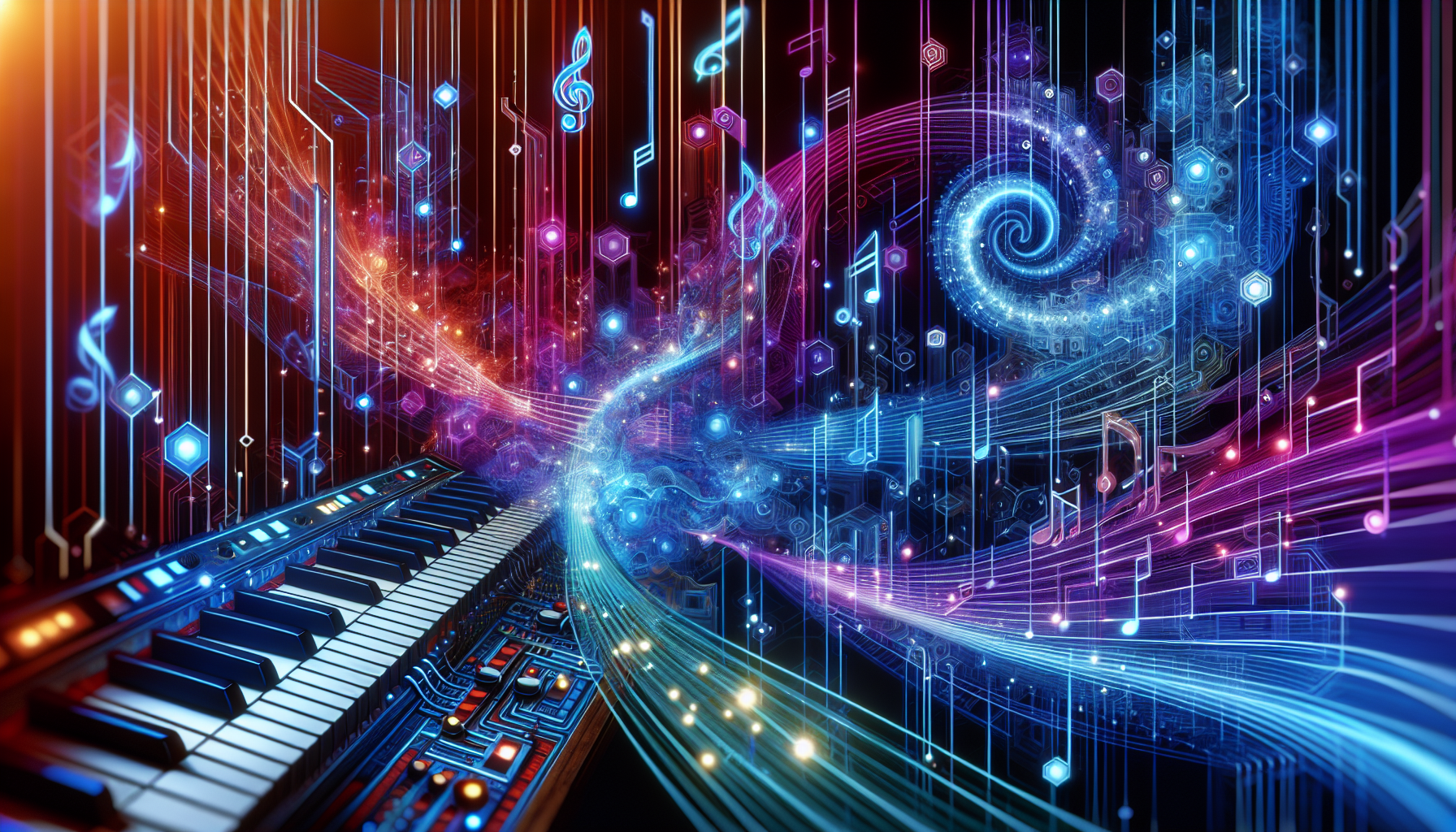
A Smarter Beat: AI’s Crescendo in the Music Industry
The Symphony of Algorithms and Melodies
Artificial intelligence is playing the role of a digital maestro, transforming the music industry faster than a speeding allegro. Imagine being able to generate a basic melody quicker than it takes to hum Twinkle Twinkle Little Star. Yes, AI tools can muster up melodic compositions in under two seconds, granting musicians the superpower of having a musical buffet of options at their fingertips. It’s like having a musical genie that obliges at the speed of thought.
Who knew that snazzy algorithms could take center stage in analyzing data from streaming platforms and social media? AI is painting the town red—digitally, that is—by identifying trends and pairing A&R representatives with their next top-charting superstar. This is truly the era of data-driven disco, where every stream counts, literally.
Turning the Dials on Creativity and Logistics
With ravenous anticipation, the industry taps into AI’s clairvoyant capabilities to predict which tracks will have fans kicking up their heels across global markets. These digital crystal balls aid in crafting savvy music releases that play like a perfectly timed crescendo. Not to mention the logistical jazz AI plays, smoothing over tour schedules and booking venues like a seasoned roadie with a penchant for precision.
The AI revolution has also infiltrated live stream concerts, music distribution, and marketing strategies, ensuring that every artist’s track not only rises but shines amid the cacophony of releases. Platforms like Spotify and Apple Music utilize AI-fueled recommendations, serving listeners playlists that feel personally mixed by an invisible DJ who knows them better than their taste buds.
Clever Clogs and The Perils of Pixels
Deepfakes, Dollars, and a Dash of Digital Drama
With AI’s reach expanding into royalty management and metadata auto-tagging, making songs searchable as easily as finding Waldo at a nudist colony, one might think the industry is all sunshine and charts. However, the introduction of AI-generated music has spun a web of copyright quandaries. The lines blur between what is humanly heartfelt and algorithmically assembled, calling for new legal symphonies to be composed.
And then, there’s the crescendoing deepfake technology, unsettlingly real and increasingly woven into the fabric of film and gaming. These neural networks promise advancements, but as they say in showbiz, not all that glitters is synthesizable. The technology’s booming CAGR of 41.5% through the decade has creatives both excited and a tad apprehensive about who—or what—gets to take the curtain call.
The Rise of the Algorithmic Empire
Surveying this AI-infused landscape, we see a stage set for astronomical growth, with the music industry poised to leap into a shimmering $38.71 billion by 2033. Genre loyalty? Electronic and hip-hop music are leading the embrace, with over half of their producers already entwining AI into their craft. It would seem that musical legends are being reborn through lines of code, as unpredictable and lovely as the genres they serve.
In this quixotic twist of fate, musicians, engineers, and digital wizards alike are composing a future rich in potential, with AI as both the baton and the muse. So, as these tunes continue to evolve in the era of AI, one can only sit back, press play, and perhaps laugh along with the serendipitous sounds of intelligent innovation.






